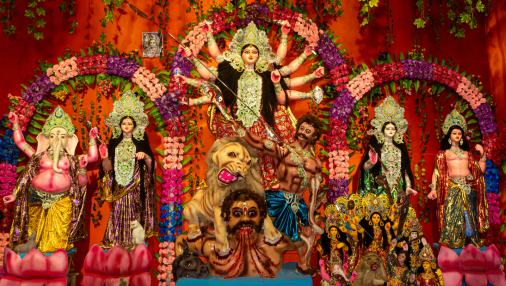Why Navratri is Important: A Festival of Spirituality, Strength, and Celebration
India is a land of festivals, and among the most significant is Navratri, a nine-day celebration dedicated to the divine feminine energy, Goddess Durga. Every year, people across India and even in many parts of the world celebrate Navratri with devotion, dance, fasting, and cultural activities. The word “Navratri” comes from Sanskrit, meaning “nine nights,” and during this period, each night is dedicated to worshiping a different form of Goddess Durga.
But what makes Navratri so important? Beyond being just a religious festival, Navratri holds deep spiritual, cultural, and social value. It is not only a celebration of good over evil but also a time for self-discipline, renewal, and unity. Let us explore why Navratri is such a significant occasion.
1. Celebration of Good Over Evil
One of the main reasons Navratri is important is that it symbolizes the victory of good over evil. According to Hindu mythology, Goddess Durga fought for nine days and nights against the demon king Mahishasura and finally defeated him. This victory signifies that no matter how strong evil may seem, truth and righteousness will always prevail.
2. Worship of the Divine Feminine Energy
Navratri is dedicated to the Shakti or feminine power that sustains the universe. Each day is devoted to one of the nine forms of Goddess Durga, such as Shailputri, Brahmacharini, Chandraghanta, Kushmanda, and others. These forms represent courage, wisdom, prosperity, and compassion.
3. A Time for Spiritual Growth
Navratri is also a time for introspection and spiritual growth. Many people observe fasts during this period, which helps cleanse the body and mind. Alongside fasting, devotees spend more time in prayer, meditation, and chanting, deepening their connection with the divine.
4. Cultural Unity and Festivities
Navratri is celebrated differently across India, showing the country’s diversity. In Gujarat, people perform Garba and Dandiya Raas. In West Bengal, it culminates in the grand festival of Durga Puja. In the South, families create Golu displays with decorated steps of figurines. Despite regional variations, the spirit of Navratri remains the same—devotion, joy, and togetherness.
5. Promotes Discipline and Self-Control
Fasting during Navratri is not only about food but also about controlling desires and leading a pure life. People avoid negative habits and focus instead on positivity. This discipline builds mental strength and balance.
6. Boosts Social and Family Bonds
Navratri strengthens social and family ties. Families gather for prayers, Garba nights, or preparing traditional food. It’s also a time when people give to charity and help the needy, spreading joy in society.
7. Economic and Cultural Significance
Navratri has a strong economic impact. Markets thrive as people buy new clothes, jewelry, and puja essentials. Artisans and performers showcase their talent in cultural events, boosting local economies.
8. Symbol of Renewal and Positive Energy
Navratri occurs twice a year—during Chaitra (spring) and Sharad (autumn). These are times of seasonal change, and fasting and prayers during this period act as renewal for body and soul. Devotees believe divine energy is strongest during Navratri, and it can be absorbed through devotion.
Conclusion
Navratri is more than just a religious festival—it is a celebration of life, energy, and togetherness. It teaches us about discipline, respect for women, unity in diversity, and the eternal victory of good over evil. Whether through spirituality, cultural dances, or family gatherings, Navratri fills hearts with positivity and hope.

